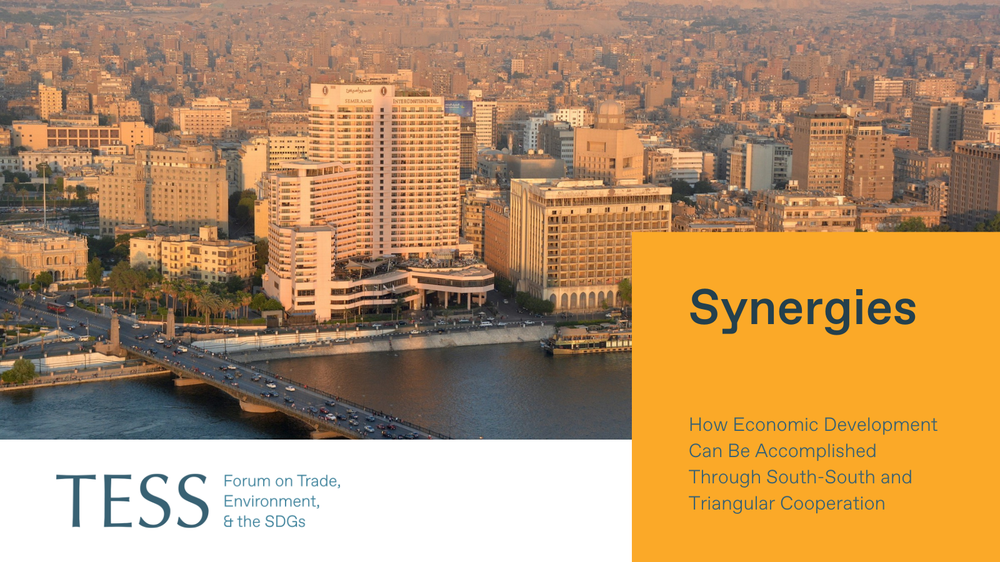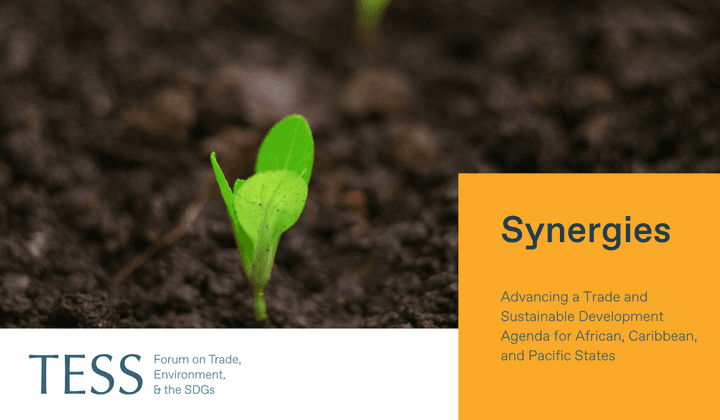South-South and Triangular Cooperation (SSTC) empowers developing nations to lead growth through shared innovations, capacity building, and peer learning. SSTC strengthens trade, infrastructure, and technology exchange, boosting self-reliance and regional integration. With the Global South driving over half of global growth, SSTC offers a powerful, inclusive model for sustainable development beyond traditional aid.

In our interconnected world, economic development can no longer depend on traditional, top-down aid models. Developing countries must pursue partnerships grounded in cooperation, equality, and shared learning. South-South and Triangular Cooperation (SSTC) embodies this shift. This SSTC approach brings together nations of the Global South to address urgent development challenges using their innovations, experiences, and resources.
Since its inception in 1955, the concept of South-South Cooperation (SSC) has undergone significant evolution. SSC encompasses a wide-ranging framework of collaboration among countries of the Global South, fostering cooperation on the economic, social, political and environmental fronts. Its agenda is anchored on principles of national sovereignty, self-determination, equity, and non-conditionality.
Knowledge Exchange and Global Partnerships
SSTC isn’t a substitute for North-South cooperation. It rather plays a complementary role in consolidating North-South cooperation, which is essential for bridging the technological and knowledge gap between countries.
SSTC can foster self-reliance, enhance communication, and increase participation in international economic activities among developing countries. Its objectives include building capacity to identify and address development challenges, promote knowledge sharing, and exchange technologies and best practices. Ultimately, it seeks to enhance productive capacity, facilitate trade and investment, and achieve the UN SDGs.
With Global South countries now driving more than half of global economic growth, SSTC has emerged as a transformative force in development. It proves that sustainable growth can and must be driven from within by championing local expertise, horizontal partnerships, and self-determined progress.
South-South cooperation is expanding faster than traditional forms of bilateral and multilateral finance. These new relationships focus on capacity building, infrastructure, technology development and transfer, and climate adaptation. Since 1995, the share of trade between developed economies has declined by nearly 15%, while South-South trade has increased by 14.1%. Furthermore, South-led multilateral development banks increased their loan portfolios tenfold from $7.2 billion in 2000 to $73.4 billion in 2021.
The Role of Multilateral Finance Institutions
SSTC is an increasingly discussed topic among international financial institutions, multilateral development banks, and regional banks. These organizations are increasingly promoting and encouraging horizontal partnerships and knowledge exchange among nations. This approach recognizes the unique experiences and expertise that countries of the Global South possess. It allows them to contribute innovative solutions to address common challenges.
The success of these institutions lies in their provision of platforms for diverse collaborations, ranging from economic partnerships and trade agreements to technical assistance and capacity-building initiatives. Multilateral development banks, particularly, can create platforms for diverse collaborations through cooperative tools that can serve as platforms for knowledge exchange and capacity building. This actively promotes technical assistance programmes and peer-to-peer learning among developing member countries. They play a crucial role in mobilizing resources, disseminating the most efficient policies, and building robust networks that connect policymakers, experts, and practitioners across the Global South.
Another key mechanism is direct project financing that prioritizes SSTC. For instance, the Islamic Development Bank utilizes its Reverse Linkage mechanism to provide financial and technical support to enable member countries to share their expertise with others. This facilitation has led to tangible outcomes, including advancements in public health, agricultural productivity, infrastructure development, and environmental sustainability.
By championing a more equitable and inclusive global development, these institutions are strengthening the collective voice and influence of developing nations on the international stage to foster economic growth and social progression.
A New Era of Cooperation
In recognition of the importance of measurement and data analysis, an initial voluntary framework to measure South-South cooperation has been developed by countries like Brazil, China, Colombia, Cuba, Egypt, Ghana, Mexico, South Africa, and Tanzania. This framework involves collaboration among UN member states, regional organizations, and various stakeholders to enhance data reporting mechanisms on development support. Such initiatives and frameworks play a pivotal role in achieving a universally accepted SDG indicator of development support that adequately reflects the perspectives and realities of the Global South.
Global systems must adapt to unlock the full potential of SSTC. Financial architecture should become more inclusive of middle-income countries. International platforms must better align with country-led initiatives. Development partnerships must move beyond aid toward co-investment in ideas, innovation, and impact. There are a variety of possible solutions, but we need better ways to connect them. The Global South will continue to build bridges across regions and institutions, contributing to a future where knowledge is shared, development is inclusive, and growth is truly global.
* This article was first published by the World Economic Forum.
----------
Rania Al-Mashat is Minister of Planning, Economic Development and International Cooperation, Ministry of Planning, Economic Development and International Cooperation of Egypt.
-----
Synergies by TESS is a blog dedicated to promoting inclusive policy dialogue at the intersection of trade, environment, and sustainable development, drawing on perspectives from a range of experts from around the globe. The editor is Fabrice Lehmann.
Disclaimer
Any views and opinions expressed on Synergies are those of the author(s) and do not necessarily reflect those of TESS or any of its partner organizations or funders.
License
All of the content on Synergies is licensed under a Creative Commons Attribution-NonCommercial-ShareAlike 4.0 International (CC BY-NC-SA 4.0)
license. This means you are welcome to adapt, copy, and share it on your
platforms with attribution to the source and author(s), but not for
commercial purposes. You must also share it under the same CC BY-NC-SA
4.0 license.
If you would like to reuse any material published here or if you have any other question related to Synergies, send an email to fabrice.lehmann@graduateinstitute.ch.




